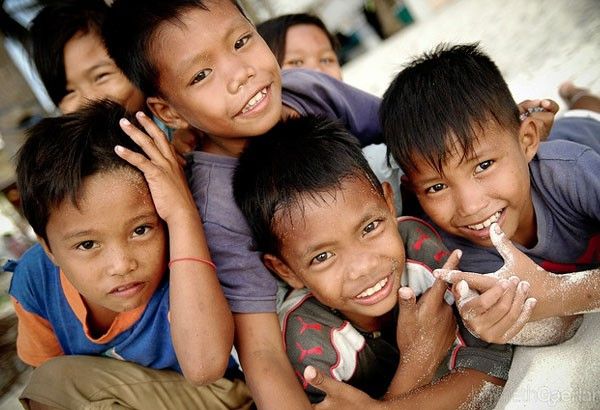Lowering age of criminality to 9 against human rights, Unicef says

MANILA, Philippines — The attempt of the Philippines to jail children as young as nine years old for crimes is a violation of human rights, the chief of the United Nations children's agency in the country said, as she criticized the government for ignoring facts related to the issue.
In a telephone interview with the UK newspaper The Guardian, Lotta Sylwander, Unicef's country representative in the Philippines, said that this move of Filipino legislators to lower the age of criminal responsibility from 15 to nine is against human rights.
Sylwander said children at this age do not fully comprehend the repercussions of their actions especially if they were coerced by an adult.
"Apart from the fact that it's against human rights, it's very unfair to a child, to punish them in such a harsh way as the criminal system would be, for something that they never understood was that serious," Sylwander said.
President Rodrigo Duterte won last year's elections largely on the promise to exterminate criminality and drug use in the country. He also promised to stop narcotics groups from using minors as drug couriers.
Philippine congressmen are pushing to lower the current age of criminality from 15 to nine. These efforts are coupled with the government's push to restore death penalty which was outlawed by the country in 2006.
Politicians opposing these proposals argue that these bills could lead to a situation in which a nine-year-old child is sentenced to death, the report said.
Sylwander said that this proposal may not lower criminality and instead have an opposite effect.
"By incarcerating children at such a young age, they, in fact, become well-trained criminals by being brought up in prisons with other criminals," she told the newspaper.
Sylwander added that these efforts would have effects on these children for the rest of their lives.
"If they grow up spending their teenage years in a prison, they most probably will be damaged for life," Sylwander said.
"It doesn't fix the problem, it's a great child violation and it will be a great burden on the criminal system, an unnecessarily burden," she said.
Sylwander criticized Duterte for ignoring national police statistics that show that less than 2 percent of all crimes in the Philippines are committed by children below 15.
"It seems he rarely listens to facts, or doesn't find out the facts before he talks," she said.
She also criticized the government for its war on drugs for killing both drug dealers and addicts. Several children were also killed in its wake.
She also said that the government is exerting less effort to get the big drug dealers and focuses on the small drug pushers and dealers.
"It seems there is less effort to get the big guys. You shoot the small gangsters or the small drug traders in the slum areas and the poor areas. But there seems to be no real, concerted efforts to get the big drug lords in the country. And there are quite a few," Sylwander said.
The UN Committee on the Rights of the Child said that setting the age of criminal responsibility below 12 was considered "not to be internationally acceptable," The Guardian said.
Unicef said that instituting restorative justice programs is more effective, reducing offenses by up to 70 percent.
The bill lowering the age of criminal responsibility was introduced by House Speaker Pantaleon Alvarez, a close ally and associate of the president. The proposed law would consider criminally liable children between nine and 18 if they are "determined to have acted with discernment." The bill is silent on how discernment will be decided.
Unicef said that because of the snail-paced justice system in the Philippines, children would likely spend a lot of time in jails.
"The court system is extremely slow so it would take a long time for these kids to be convicted, which means they will basically spend a long time in prison," she said.
- Latest
- Trending





























